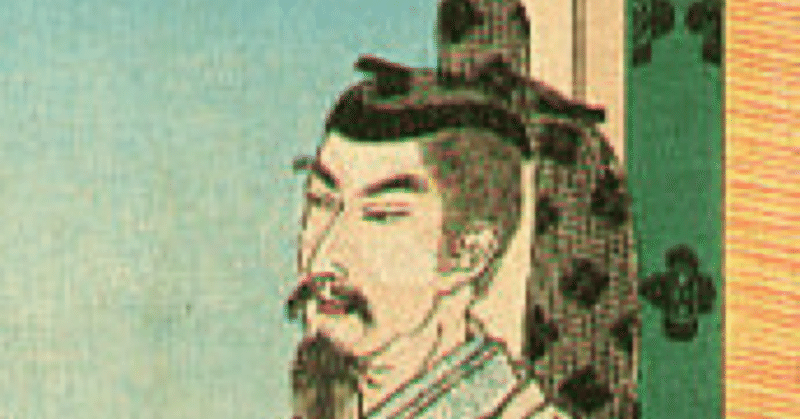
ChatGPTの『日本書紀』英訳 仁徳天皇 12
『日本書紀』仁徳天皇 12
十一年夏四月戊寅朔甲午、詔群臣曰「今朕視是國者、郊澤曠遠而田圃少乏、且河水横逝、以流末不駃。聊逢霖雨、海潮逆上、而巷里乘船、道路亦泥。故、群臣共視之、決横源而通海、塞逆流以全田宅。」
冬十月、掘宮北之郊原、引南水以入西海、因以號其水曰堀江。又將防北河之澇、以築茨田堤、是時、有兩處之築而乃壞之難塞、時天皇夢、有神誨之曰「武藏人强頸・河內人茨田連衫子衫子、此云莒呂母能古二人、以祭於河伯、必獲塞。」則覓二人而得之、因以、禱于河神。爰强頸、泣悲之沒水而死、乃其堤成焉。
唯衫子、取全匏兩箇、臨于難塞水、乃取兩箇匏、投於水中、請之曰「河神、崇之以吾爲幣。是以、今吾來也。必欲得我者、沈是匏而不令泛。則吾知眞神、親入水中。若不得沈匏者、自知偽神。何徒亡吾身。」於是、飄風忽起、引匏沒水、匏轉浪上而不沈、則潝々汎以遠流。是以衫子、雖不死而其堤且成也。是、因衫子之幹、其身非亡耳。故時人、號其兩處曰强頸斷間・衫子斷間也。是歲、新羅人朝貢、則勞於是役。
≪英訳≫
In the eleventh year, in the fourth month on the seventeenth day of summer, the Emperor issued a decree to his ministers saying, 'Looking at our country now, the land is vast, but there are too few rice paddies. Moreover, the rivers overflow, and during prolonged rains, the tides invade the land, forcing villagers to rely on boats and burying the roads in mud. Ministers, observe this carefully and make arrangements to channel the overflow into the sea and prevent the backflow, so as not to flood the fields and homes.'
In the winter of the tenth month, they dug through the northern fields of the palace and directed the waters southward into the western sea (Osaka Bay), naming the channel Horie. They also built the Manda levee to the north to keep out debris from the rivers. However, there were two places that were difficult to protect and kept breaking down. The Emperor then had a dream where a deity appeared and instructed, 'If you dedicate two men, Tsuyokubi from Musashi and Manda no Muraji Koromono no Ko from Kawachi, to the river god, they will surely protect these areas.'
Thus, the two were sought and found. The men were then sacrificed to the river god. Tsuyokubi cried and lamented as he was placed into the water, and the levee was completed. Koromono no Ko, on the other hand, took two round gourds and, facing the difficult-to-protect river, cast them into the water as a divination to discern the divine will. He declared, 'Since the river god is cursing us, I have been chosen as a sacrifice. If you truly desire to obtain me, sink these gourds so that they do not float. If you do, I will also acknowledge the true divine intent and enter the water. If the gourds cannot be sunk, consider it a false god's doing, and do not waste my life.' A whirlwind suddenly arose trying to pull the gourds underwater, but they merely rolled on the surface of the waves and floated away. Koromono no Ko did not die, and the levee was completed. It was due to his wit that he saved himself. The places were then named after them: Tsuyokubi's Break and Koromono no Ko's Break."
In that year, the Silla people made a pilgrimage and labored in this service.
≪この英文の和訳≫
十一年の夏、四月十七日に、天皇は群臣(くんしん)に詔(みことのり)をして「現在、国土は広いものの、田圃が足りない。また、河川が氾濫し、長雨が続くと潮が陸に侵入し、村人は舟に頼り、道路は泥で埋まってしまう。群臣はこれをよく視て、溢れた水が海に通じるようにし、逆流が田畑や家屋を損なうことのないようにせよ」と言われました。
冬の十月には、宮の北部の野を掘り、南からの水を西の海(大阪湾)へと導きました。その水路を堀江(ほりえ)と名付けました。また、北の河からの塵(ちり)や芥(あくた)を防ぐために、茨田(まんだ)の堤(つつみ)を築きましたが、防ぐのが難しい箇所が二箇所ありました。天皇が夢を見られ、そこに神が表れて教えを告げられました。「武蔵(むさし)の強頸(つよくび)と河内(かわち)の茨田連衫子(まんだのむらじころものこ)を河伯(かわのかみ)に奉れば、守り抜くことができるだろう」。
この二人を探し出し、河伯(かわのかみ)に人身御供として捧げました。強頸(つよくび)は泣き悲しみながら水に入れられ、その堤は完成しました。一方、衫子(ころものこ)は丸い瓢(ひさご ひょうたん)を二つ取り、防ぐのが難しい河に臨み、神意を伺うためにその中に投げ入れ「河神(かわのかみ)が祟るため、私が生贄にされました。本当に私を得たいなら、これらの瓢を沈めて浮かばないようにしてください。そうすれば、私も真の神意として水中に入ります。瓢が沈まない場合は、偽りの神と考え、無駄に命を落とすことはありません」と述べました。突然の旋風(つむじかぜ)が瓢を水中に引き込もうとしましたが、瓢は水面を転がるだけで沈みませんでした。流れに乗って遠く流されながら、衫子(ころものこ)は命を失うことなく、堤も完成しました。これは、彼の才知により命が救われたためです。その後、この二箇所はそれぞれ強頸断間(こわくびのたえま)、衫子断間(ころものこのたえま)と名付けられました。
この年、新羅人(しらぎびと)の朝貢があり、この工事に使われました。
令和6年4月30日(火) 2024
この記事が気に入ったらサポートをしてみませんか?
